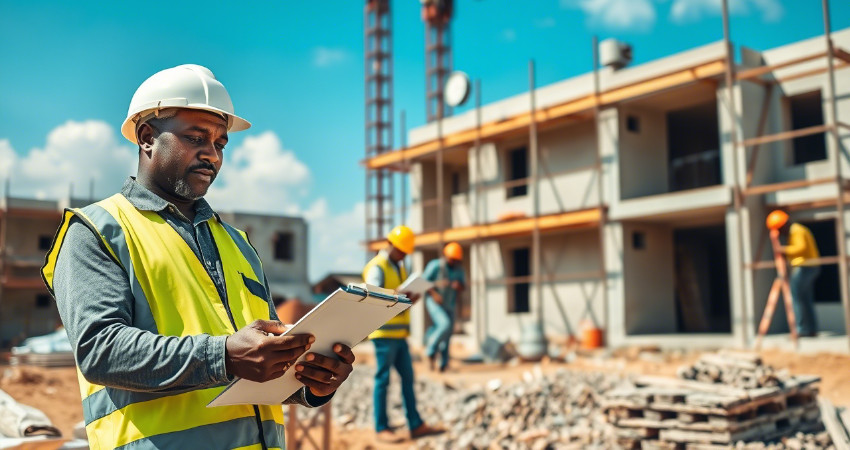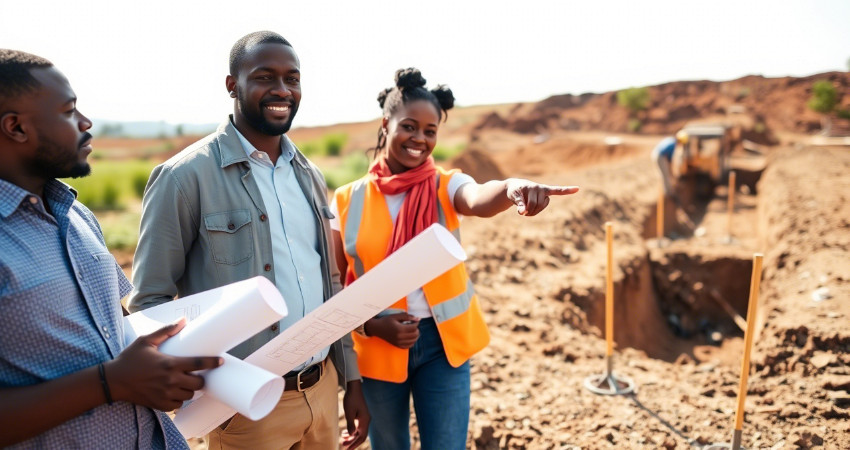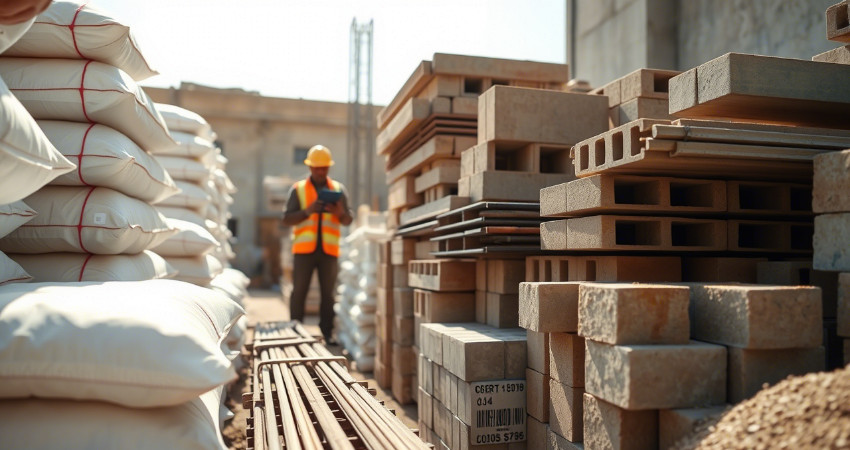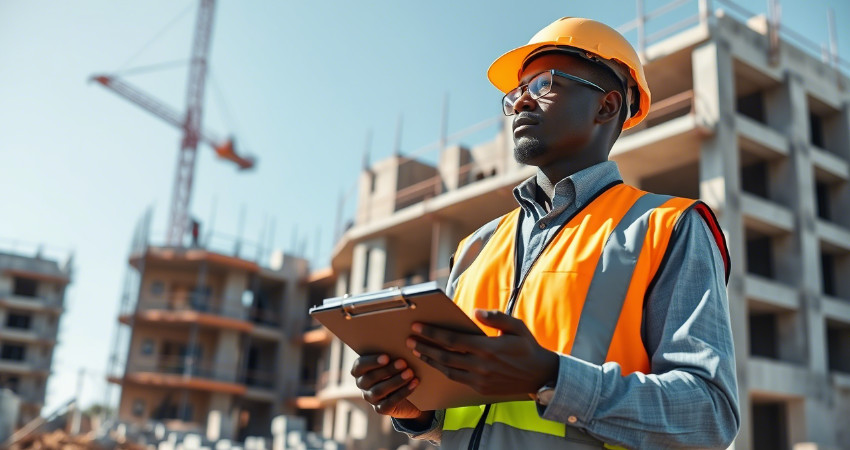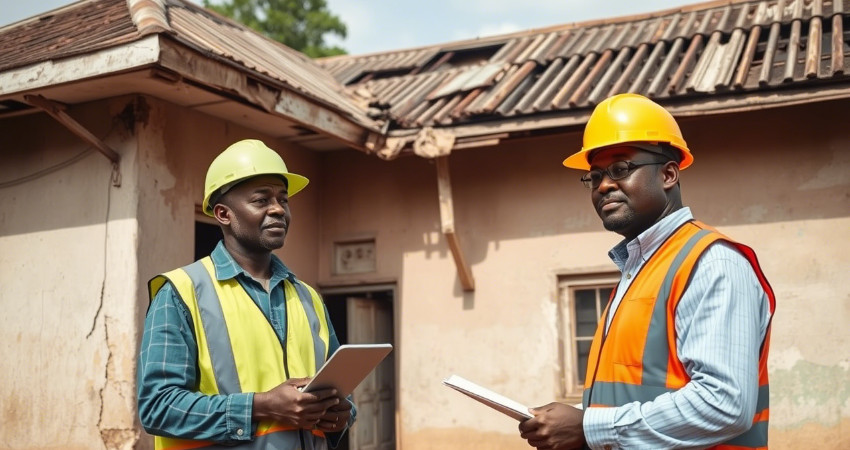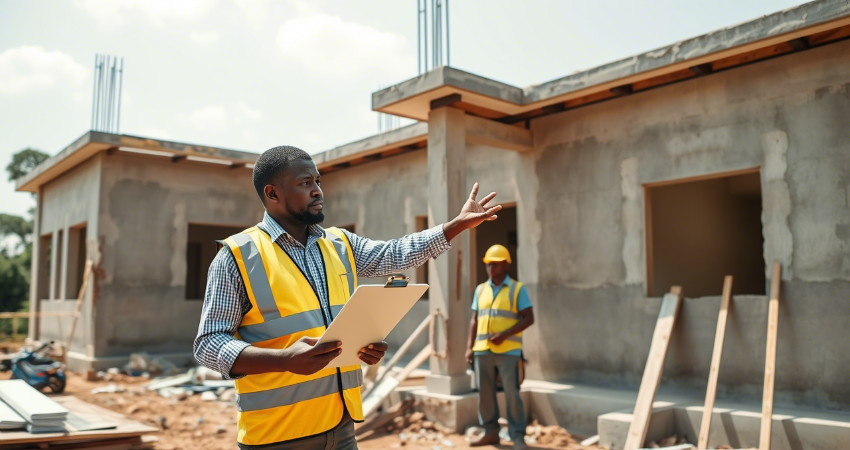
Common Mistakes to Avoid When Building in Kenya
Building a house or commercial structure in Kenya is a big investment. Whether you're a first-time developer or experienced contractor, some costly mistakes can creep in if you're not careful.
Let’s break down the most common mistakes—and how to avoid them.
1. Skipping Land Verification
Just because land looks legit doesn’t mean it is.
- Always conduct a land search at the Ministry of Lands.
- Ask for the title deed and confirm the seller's details.
- Beware of "land brokers" who offer too-good-to-be-true deals.
Many people have lost money buying land that's under dispute or already owned by someone else. Protect yourself by doing proper due diligence before committing.
2. Ignoring County Approvals
Building without permits isn’t just risky—it’s illegal.
- Get approvals from your local county government.
- Submit architectural plans to the relevant planning office.
- Pay the necessary fees before breaking ground.
If you build without approvals, your site could be shut down. Worse, your building might be demolished.
3. Underestimating the Budget
Many projects stall because of poor budgeting.
- Break down your construction costs into phases.
- Include materials, labor, permits, transport, and contingency.
- Expect price changes—cement, steel, and timber prices fluctuate often.
Avoid the trap of starting with just "something small." That “something” can easily become a dead project with an incomplete foundation.
4. Hiring Unqualified Fundis
Cheap labor can be very expensive.
- Don’t hire fundis (casual builders) without checking their past work.
- Ask for references or a short trial.
- Avoid relying solely on word-of-mouth recommendations.
A poorly done foundation, roof, or plumbing job will cost double to fix. Go for experience and proven skill.
5. Poor Planning for Utilities
Thinking of power and water last? That’s a mistake.
- Plan for electricity, water, and drainage early in your design.
- Consider boreholes or rainwater collection if you’re in a remote area.
- Talk to your service providers before finalizing your layout.
You don’t want to realize you forgot sewer access after you’ve already tiled your floors.
6. Choosing the Wrong Materials
You don’t always have to buy the most expensive materials. But quality matters.
- Buy from trusted suppliers with good reviews.
- Be cautious of “cheap deals” from roadside vendors.
- Ask your contractor to verify material specs before purchase.
One cracked bag of cement or low-grade steel bar can compromise your structure’s safety.
7. Failing to Supervise the Project
Even the best workers need supervision.
- Don’t assume things are okay just because the site looks busy.
- Visit regularly or assign a reliable site manager.
- Keep records of what materials arrive, how they’re used, and what’s pending.
Site theft and misuse are real problems. Without supervision, you may lose both time and money.
8. Ignoring Professional Advice
You might be tempted to skip hiring professionals to “save costs.”
- Work with a registered architect for your design.
- Use a qualified structural engineer, especially for multi-storey buildings.
- Have a quantity surveyor help with cost estimates.
Professionals help you avoid hidden problems. A shortcut today may lead to a rebuild tomorrow.
9. Not Signing a Contract
Never rely on handshakes.
- Have a written agreement with your contractor.
- Include timelines, payment schedules, and scope of work.
- Sign it before the first shovel hits the ground.
A contract protects both you and your builder in case things go wrong.
10. Ignoring the Environment
Don't fight nature—work with it.
- Study the soil before building. Some soils require special foundations.
- If the land floods during rain, raise your foundation or improve drainage.
- Don’t cut trees unnecessarily; they help with shade and erosion control.
Environmental mistakes are often expensive and difficult to reverse.
A Few Final Questions
- Are you building with long-term goals in mind, or just reacting to the present?
- Would your current plan still work five years from now?
- Who’s checking your builder’s work when you’re not around?
Start with the right steps, and you’ll avoid regrets. Kenya has thousands of unfinished or poorly done structures that could’ve turned out better with just a bit more planning.
If you want your project to stand the test of time, do it right the first time.
Let the mistakes others have made guide your better decisions.

